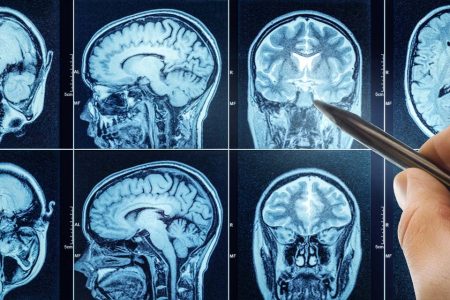A little more than a drink a day can increase your risk of brain lesions associated with memory and cognitive problems by a staggering 133 percent, a new study has found.
For the study, published in the journal Neurology, researchers drew on autopsy data from the Biobank for Aging Studies at the University of São Paulo Medical School in Brazil and surveys from next of kin to measure the patients’ cognitive function and alcohol consumption in the three months prior to their deaths.
Adjusting for other factors, including age, sex, heart disease and other health conditions, the researchers found heavy drinkers – that is, those who consume more than 8 alcoholic drinks a week – had a 133-percent increased risk of developing vascular brain lesions than those who never drank. Those who quit heavy drinking cut their increased risk by 44 percentage points, although it remained higher than for moderate drinkers – those who have up to 7 alcoholic drinks a week, whose risk is 60 percent. Heavy drinkers also died, on average, 13 years earlier than their non-drinking peers.
“We found heavy drinking is directly linked to signs of injury in the brain, and this can cause long-term effects on brain health, which may impact memory and thinking abilities,” Alberto Fernando Oliveira Justo, a researcher at the University of São Paulo Medical School and the study’s lead author, said in a press release. “Understanding these effects is crucial for public health awareness and continuing to implement preventive measures to reduce heavy drinking.”
[See more: Junk food could be damaging your brain, a study finds]
For the population-based cross-sectional study, the team from the University of São Paulo Medical School and the University of California San Francisco, looked at 1,781 patients aged 50 or older at the time of death. Based on the next-of-kin surveys, they were divided into non-drinkers (965), moderate drinkers (319), heavy drinkers (129) and former heavy drinkers (368), having stopped consuming alcohol more than three months before their deaths.
Looking at neurofibrillary tangles (abnormal clumps of tau proteins associated with Alzheimer’s disease) and related neurodegenerative disorders, heavy drinkers had an increased risk of 41 percent compared to non-drinkers, while former heavy drinkers came in 10 percentage points lower with an increased risk of 31 percent.
All drinking categories also showed a higher risk of hyaline arteriolosclerosis, a condition that causes the walls of small blood vessels in the brain to thicken, reducing blood flow and causing brain damage over time. Adjusting for other contributing factors, heavy drinkers have a 133-percent increased risk of developing the condition compared to those who never drank.
Findings from the Brazilian study add to a growing body of evidence that alcohol consumption carries increased risk of serious health conditions. Drinking alcohol, according to the US Centers for Disease Control and Prevention, can also increase risk of cancer and excessive consumption can increase the risk of high blood pressure, heart disease and stroke.






